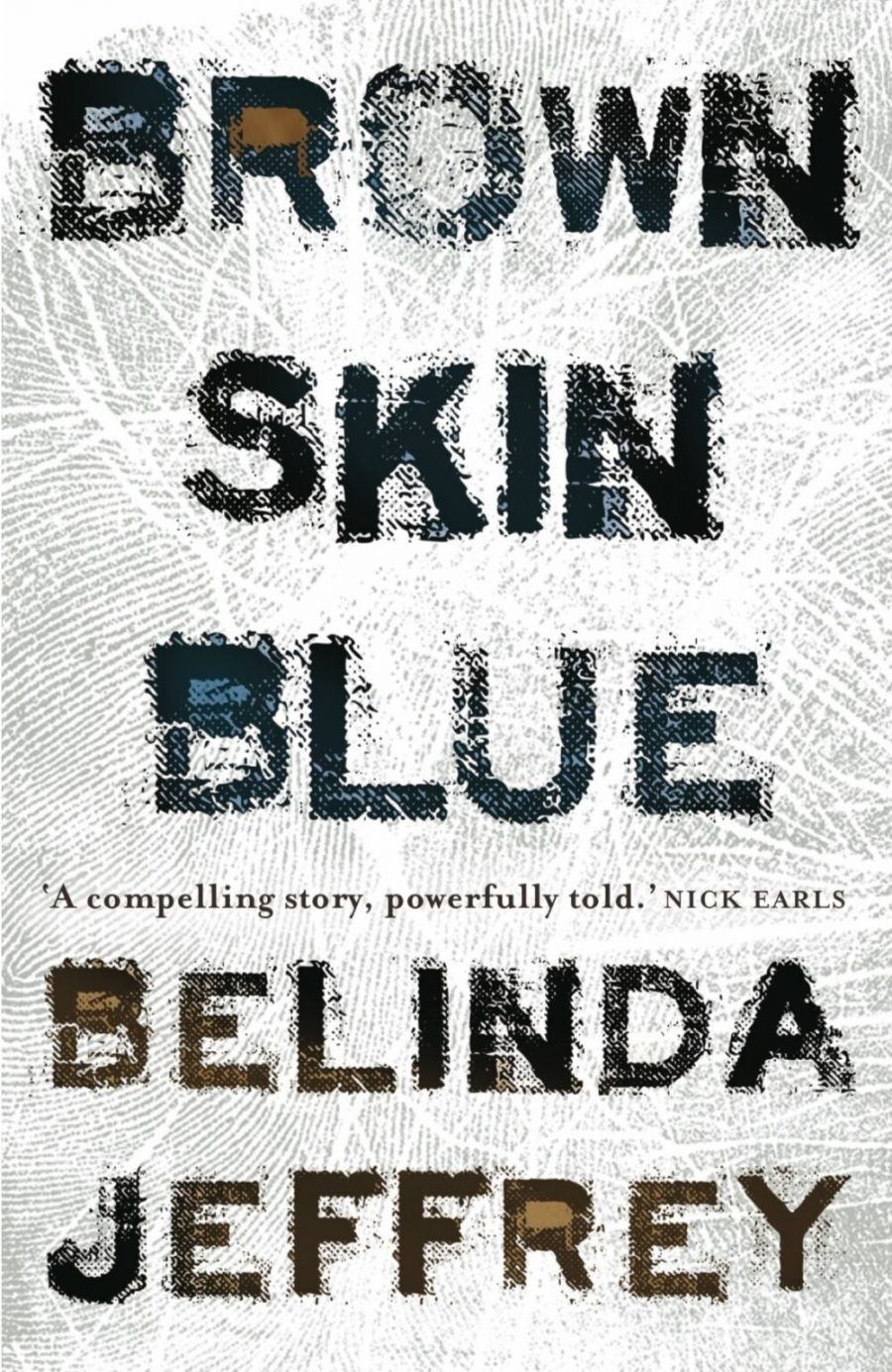
- Free Article: No
- Contents Category: Children's and Young Adult Fiction
- Custom Article Title: Gillian Wills reviews 'Brown Skin Blue' by Belinda Jeffrey
- Review Article: Yes
- Article Title: Ring of renewal
- Online Only: No
- Custom Highlight Text:
The Adelaide River in the Northern Territory is both a small township and a river that is an infamous cruising zone for sizeable salties. Here, thrill-seekers frequent ‘Jumping Croc Tours’ and dine out on the local specialty of barramundi and hot chips. Resting on the Stuart Highway, 201 kilometres north-west of Katherine and 114 kilometres south of Darwin, the township’s population is around 250. The location’s in-between status is ideal for this story of splintered lives.
Brown Skin Blue’s hero, Barry Mundy, is on the threshold of adulthood, and like most adolescents he is wrestling with identity; but in Mundy’s case the struggle is compounded by not knowing who his father is, or even his own racial heritage. Some call him an indigenous Australian; others call him ‘Darkie’, ‘Brownie’ or ‘Dirt’. His mother is white-skinned; he is not. In the midst of this bewildering ambiguity, the seventeen-year-old’s troubled introspection and sexual awakening are spiked by unwelcome flashbacks of a devastating childhood trauma. Suspended somewhere between longing to forget and wanting to remember, Mundy is deeply conflicted.
- Book 1 Title: Brown Skin Blue
- Book 1 Biblio: University of Queensland Press, $19.95, 228 pp
It is a curious paradox that bestselling adult fiction is often of the escapist variety with languid, meandering plots that offer respite from reality. Juvenile fiction, on the other hand, goes in hard, throwing torture and appalling injustice on the table, as in Anna Pereira’s Guantanomo Boy (2009), and colonial racism and unconscionable cruelty, as in M.T. Anderson’s The Astonishing Life of Octavian Nothing, Traitor to the Nation (2006). These are typical of the range of seriously confronting novels targeting those on the cusp of voting rights.
This compelling confection is no exception. From the very first subdued but loaded sentence, Jeffrey reels in her audience. The tone is bold, startling and brave. One of the writer’s strengths is the theatrical discord she creates between the gritty truths disclosed and her easy, gentle style.
Writers are free to adopt multifarious voices in their imagined worlds – men write as women, women as men – but as this tale progresses, a ripple of political unease sets in. Should a non-Aboriginal writer adopt the voice, however sympathetic and informed, of a young indigenous male? Mundy’s Mum is a heavy drinker; formerly promiscuous, she once traded sex for temporary oblivion. She tells her son that there is so much to be sad about in life that ‘she should cry the Adelaide River twice over’. As Mundy’s dysfunctional family is interrogated, niggling doubt grows. How appropriate is it to rehearse the stereotypical constructs that are incessantly applied to Aboriginal communities?
Jeffrey’s real-life dislocation is replicated in her hero because she has queried her own cultural inheritance. She says, ‘I have had a fascination for the missing facts about my family history and our own brown skin … I don’t know where our dark blood comes from. We have a few theories and speculations, but we don’t know for sure.’
Mundy leaves home to track down his father – not an easy undertaking because Mum hands him a crumpled piece of paper with a scrawled shortlist of five contenders; Teabag, Toucan, Stumpy, Lovejack and BoomBoom. Mundy finds work on the Croc Jumping Tours Operation, and the crew – Sally, Boof and Cassie – offers unconditional friendship. It is at this point that the memories that torment Mundy night and day become integrated, not only with the Top End’s steamy environment but also with Albert, Elvis and Mavis, the obliging crocs that burst from the water with terrifying velocity to snatch raw meat chunks dangled from the boat.
Jeffrey uncannily evokes the preoccupations and vulnerability, not just of Mundy but of teenagers in general. Dialogue rings true, and the smells and colours and dreamy wistfulness are convincingly conveyed. When the drama climaxes, the croc-infested muddied waterway, the lush riverbanks and the kites circling in a clear blue sky, and Mundy’s overwhelming burden of existential angst merge in a death-defying entanglement. There is no conventionally happy ending; the romantic liaison with Sally that momentarily elevates Mundy’s spirit sours, and his inadequate but caring mother dies. Instead, there is an intriguing ring of renewal that springs from the depths of the tropical waterway.
On balance, this is a superior read, even though the device of stories through which Mundy fancifully explores the different possibilities of fathers grates a little, echoing, as they do, Paul Jennings’s use of the same in The Nest (2009). Nevertheless, the multi-purpose and appealing metaphor of the crocodilian eating machine that snakes and weaves through the narrative is a winner, and, if the hard-hitting themes of sexual abuse trigger thoughtful discussion and take its (doubtless) white readership on a confronting journey through alien, untenable social landscapes, this makes a powerful contribution to juvenile fiction.


Comments powered by CComment